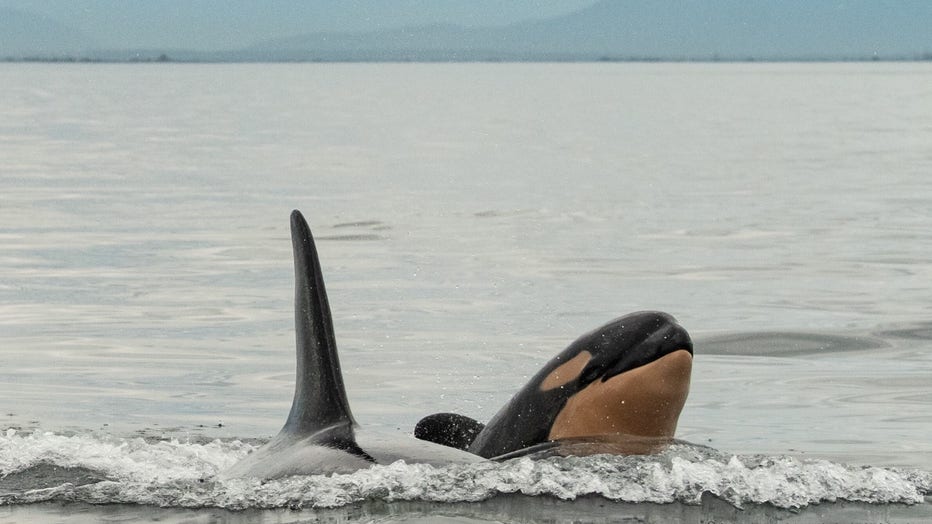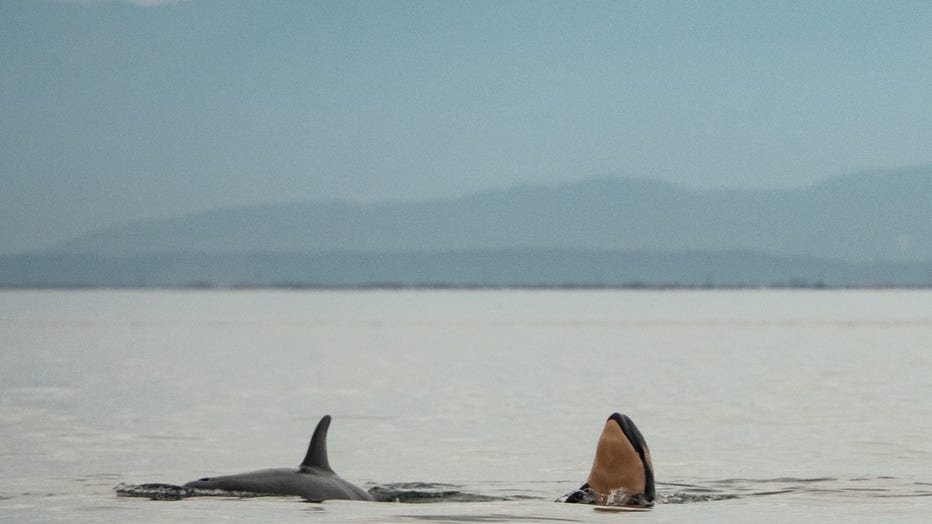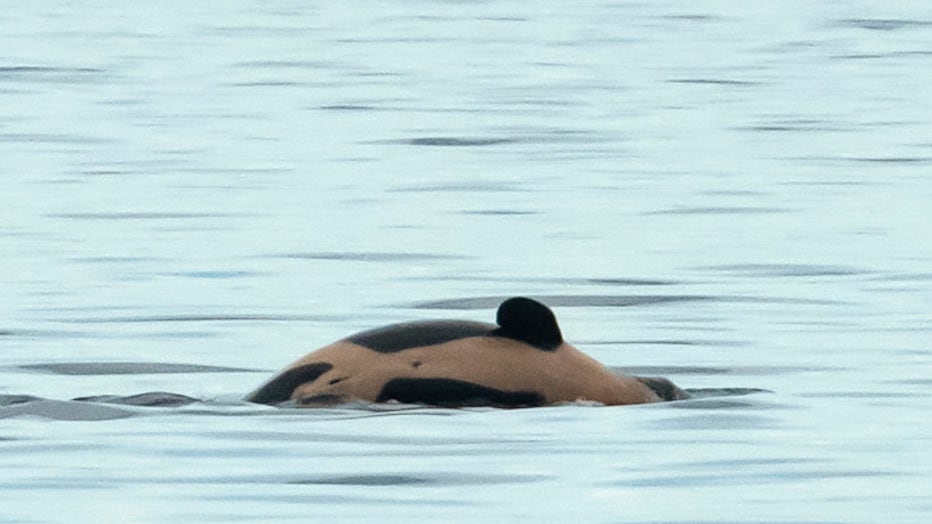It's a boy! Newest southern resident orca calf is a 'feisty' one

Newest J-pod southern resident orca calf is a boy
Researchers were hoping for a female, but they say any addition to the dwindling population is a welcome one.
FRIDAY HARBOR, Wash. - It's a boy! The newest member of the southern resident orcas' J-pod is a "feisty" one, whale watchers and researchers say.
The new calf, J57, was seen Tuesday "rolling, spyhopping and swimming" alongside his mother, Tahlequah (J35), who was foraging for food near Point Roberts, Washington.

Photographs of J57 courtesy Sara Hysong-Shimazu/Maya's Legacy and the Pacific Whale Watch Association
"It was really touching to see how active and social they were together, and to see J57 surfacing with both his mom and surrounded by others in the community," said naturalist and photographer Sara Hysong-Shimazu of Maya's Legacy. "He certainly seemed spunky and energetic!"
J57 was born in early September and is the second viable calf birthed by his mother. J57's brother, J47, was born in 2010.

Photographs of J57 courtesy Sara Hysong-Shimazu/Maya's Legacy and the Pacific Whale Watch Association
She also gave birth to a calf in 2018, but it died soon after and prompted Tahlequah's 17-day "tour of grief." Tahlequah carried her dead calf for 17 days before letting it go.
RELATED: Chinook salmon decimated, southern resident orcas are residents no more
Researchers were hoping J57 was a female to help breed more southern resident orcas; the dwindling population is down to 73 whales, including the new calf.
"Regardless of gender, J57 is a very welcome addition. He is robust and appears healthy," researchers at the Center for Whale Research said.

Photographs of J57 courtesy Sara Hysong-Shimazu/Maya's Legacy and the Pacific Whale Watch Association
The endangered orcas that return to the inland waters of Washington state every summer are genetically distinct from other killer whale populations around the world. They primarily eat salmon, rather than seals or other marine mammals.
This year, however, visits from the southern resident orca pods have been scarce in the Puget Sound.
The local orcas struggle with a lack of chinook salmon, their preferred prey, as well as toxic contamination and vessel noise.

